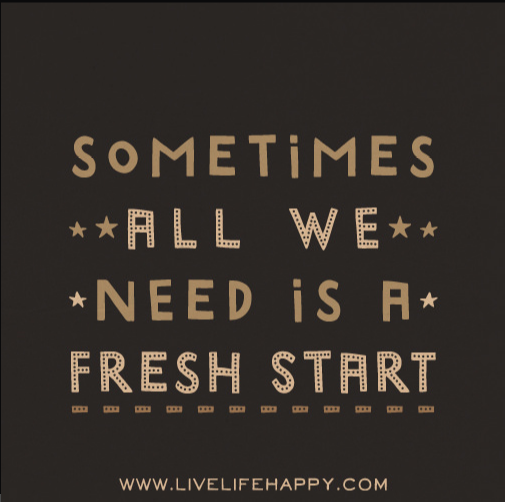Hope for the New Year

By Lily Kepner
The New Year is a milestone that forces us to reflect on the past and change for the future. The flipping of years gives encouragement for us to “flip” our flaws and become better socially, physically, or emotionally. It is no question that the encouragement is short lived, however. Statistically, only 8% of Americans who make resolutions are successful in achieving their goals (according to Statistic Brain in an article published 12/27/15). What happens to the other 92 percent? Why are we statistically unsuccessful?
The first reason is simple: negativity. Most solutions arise from negative origins. For an example, a person’s resolution to “work out more,” may arise from a need to be as fit as someone else, such as a major athlete or a sibling. We need to start making resolutions for ourselves and not who we strive to be. Comparing ourselves to others is not only unhelpful, but discouraging and damaging to self confidence. A better way to go about a resolution is to set an endpoint or goal. This can help shape your resolution into being more realistic and positive. Instead of, “I need to work out more to be like Lebron James,” try an approach like; “I will run 10 miles every week,” or “I will work out at the gym 3 days a week.” Instead of focusing on being the next Lebron James, focus on being a happier you.
The next step is setting a time frame. A resolution like “Getting better grades,” doesn’t happen overnight, but requires dedication and a different frame of mind. To approach a resolution you wish to make, ask yourself what can be done to change it. For example, to achieve the goal of raising grades, ask yourself what resources might help. Maybe resolve to attend two extra help sessions a month, or start a study group. This will help frame your goal, and lead to a better chance of success.
Reward and relief is important to the triumph of a resolution. Achieving a goal is extremely rewarding, but the path to getting there may not be. There are steps you can take to make it less painful, however. Studying a bit each night for four to five days is scientifically more effective than cramming at the last minute. Cramming is a habit we all face that turns the task of learning material into simply attempting to pass the test. Resolve to give yourself one night of rest, or a night out after the test is done. A relief from studying can help reduce stress and anxiety.
The New Year shouldn’t be a time spent focusing on the negatives of the previous year, but potential for the future. Go into this new year and new semester with an open, positive mindset toward a goal, instead of the negative memories of what you didn’t do in the past. The new year should reflect hope, not a burden for change. .
